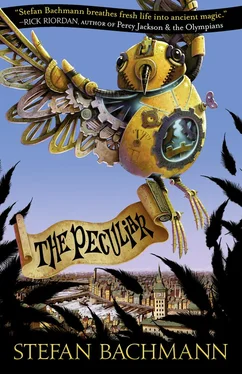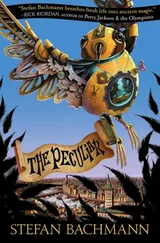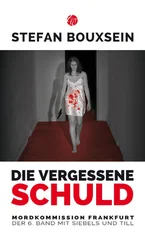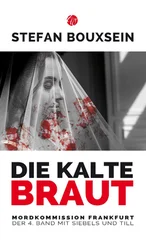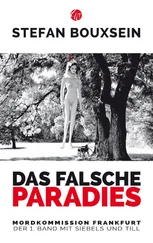“Sir, you do not know the half of it. The authorities think the murders are related. Planned and orchestrated with malicious intent.”
“Do they think that? Well, I suppose they must earn their wages somehow.”
“Lord Harkness, this is not the time.” A trace of unease broke the Speaker’s sleepy manner. “The victims are …” He faltered. “They are all children.”
Lord Harkness might have said “So?” but it would not have been polite. Instead he said, “From what I hear, there are very few changelings who are not children. They don’t generally last long.”
“And the method of murder—it is also the same.”
“Well, what is it?” Lord Harkness seemed to be intent on proving the entire meeting a ridiculous waste of time. Nobody wanted to hear about changelings. Nobody wanted to discuss changelings, or even think about changelings. But nobody wanted to hear how they died, either, and all Lord Harkness got for his efforts was a storm of black looks from the other gentlemen. Mr. Jelliby was tempted to cover his ears.
The Speaker’s nose twitched. “The authorities are not exactly sure.”
Ah. Thank goodness.
“Then how can they possibly claim the murders are related?” Lord Harkness’s voice was acid. His handkerchief was in his hands, and he looked as if he wanted to wring the old Speaker’s neck with it.
“Well, the corpses! They’re— Why, they’re …”
“Out with it, man, what is it?”
The Speaker looked straight ahead, and said, “Lord Harkness, they are hollow.”
For several heartbeats the room fell completely still. A rat scurried under the polished floorboards and its hurrying feet rattled like a burst of hail in the silence.
“Hollow?” Lord Harkness repeated.
“They are empty. No bones or internal organs. Just skin. Like a sack.”
“Good heavens,” breathed Lord Harkness, and fell back into his chair.
“Indeed.” The Speaker’s eyes passed over the other gentlemen in the room, as if daring anyone else to disrupt the proceedings. “The newspapers said nothing of that, did they? That is because they do not know. They do not know many things, and for the time being we must keep it that way. There is something strange about these murders. Something wicked and inhuman. You will not have heard it, but the changelings were covered in writing, too. Head to toe. Little red markings in the faery tongue. It is an old and different sort of faery dialect that could not be deciphered by any of the Yard’s cryptographers. I am sure you can all see what sort of unpleasantness this might lead to.”
“Oh, certainly,” the Earl of Fitzwatler mumbled from behind his drooping walrus moustache. “And I think it should be quite clear who is responsible. It is the anti-faery unions, of course. They had some waifs murdered and then scribbled up the bodies with faery words to put the blame on the Sidhe. It’s very plain to me.”
There was a great hissing at this, and just as many sage nods. Approximately half the council were members of one anti-faery group or another. The other half thought being anti anything narrow-minded, magic absolutely fascinating, and faeries the key to the future.
“Well, I say it is the faeries’ doing!” the ancient Lord Lillicrapp cried, hammering his cane into the floor so hard a splinter of wood flew up like a spark. “Little beasts. Devils straight from Hell, if you ask me. They’re the reason England’s in the state it is. Look at this country. Look at Bath. It’s going wild, it is. Soon we’ll have rebellion on our hands, and then where’ll we be? They’ll turn our cannons into rosebushes, take the city for themselves. They don’t understand our laws. They don’t care about murder. A few dead men here and there? Pshaw.” The man spat contemptuously. “It’s not wrong to them.”
A bobbing of heads followed this outburst. Mr. Jelliby pinched the bridge of his nose and prayed it would end soon. He wanted very much to be somewhere else, somewhere cheerful and loud, preferably with brandy and people who talked about the weather and wine merchants.
The Archbishop of Canterbury was the next to speak. He was a tall, grim-looking man with a haggard face, and his tweed suit—no longer very new— stood out sorely against the cravats and colored waistcoats of the other gentlemen.
“I would not be so quick to judge,” he said, leaning forward in his chair. “And I do not know why we must insist upon this word ‘changeling.’ As if we are still children, whispering over faery tales in the nursery. Peculiars, they are called, and they are quite real. They are not waifs put into the cradles of human children while the true infants are stolen into the Old Country. They will not wrinkle and waste away in a few years’ time. They will be hanged. They are forever being hanged in our more remote villages. And no wonder, if we speak of them as if they were nothing but wind and enchantments. Humans think they are curses in child’s form. Faeries are disgusted by their ugliness and are in the habit of burying them alive under elderberry bushes in case it’s catching. I rather think both parties are sufficiently foolish and ill-informed to kill.”
Up until then, Mr. Lickerish had been listening to the discussion quite impassively. But at the archbishop’s words he stiffened. His mouth formed a thin line. Mr. Jelliby saw his hand go to his waistcoat pocket. The fingers slipped in, twitched, and were still.
The faery stood. Mr. Jelliby thought he smelled wet earth. The air didn’t feel so close anymore, just old and damp and rotten-sweet.
Without bothering to wait for the old councilman’s permission, Mr. Lickerish began to speak.
“Gentlemen, these matters are indeed most troubling. But to say that the fay are murdering changelings? It is deplorable. I will not sit silent while the blame for yet another of England’s woes is laid upon the shoulders of the fay. They are citizens! Patriots! Have you forgotten Waterloo? Where would England be without our brave faery troops? In the hands of Napoleon, together with all her empire. And the Americas? Were it not for the tireless efforts of trolls and giants, forging our cannon and pouring our musket balls in the infernal heat of the factories, building our warships and aether guns, it would still be a rebel nation. We owe so much to the faeries.” Mr. Lickerish’s face remained smooth, but his words were strangely beguiling, full of nuance and subtle passion. Even the council members who were distinctly anti-fay sat up in their chairs.
Only the man next to Mr. Jelliby—a Lord Locktower—clicked his tongue. “Yes, including forty-three percent of our crime,” he said.
Mr. Lickerish turned on him. He flashed his pointed teeth. “That is because they are so poor,” he said. He stood a moment, considering Lord Locktower. Then he spun sharply, addressing instead the gentlemen on the other side of the room. “It is because they are being exploited!”
More nods and only a few hisses. The smell of damp was very strong now. Lord Locktower scowled. Mr. Jelliby saw him pull out a heavy old pocket watch and examine it angrily. The watch was an antiquated thing, scrolled and made from iron. Mr. Jelliby thought it somewhat unfashionable.
The faery politician began to pace. “It has been this way since the day we arrived,” he said. “First we were massacred, then we were enslaved, then we were massacred again. And now? Now we are your scapegoat, to be accused of all the crimes you find too distasteful to blame on your own people. Why does England hate us? What have we done that your world loathes us so? We do not want to be here. We did not come to stay. But the road home has vanished, the door is closed.”
The faery stopped pacing. He was watching the assembled gentlemen, watching them very closely. In a voice that was barely a wisp, he said, “We will never see our home again.”
Читать дальше
